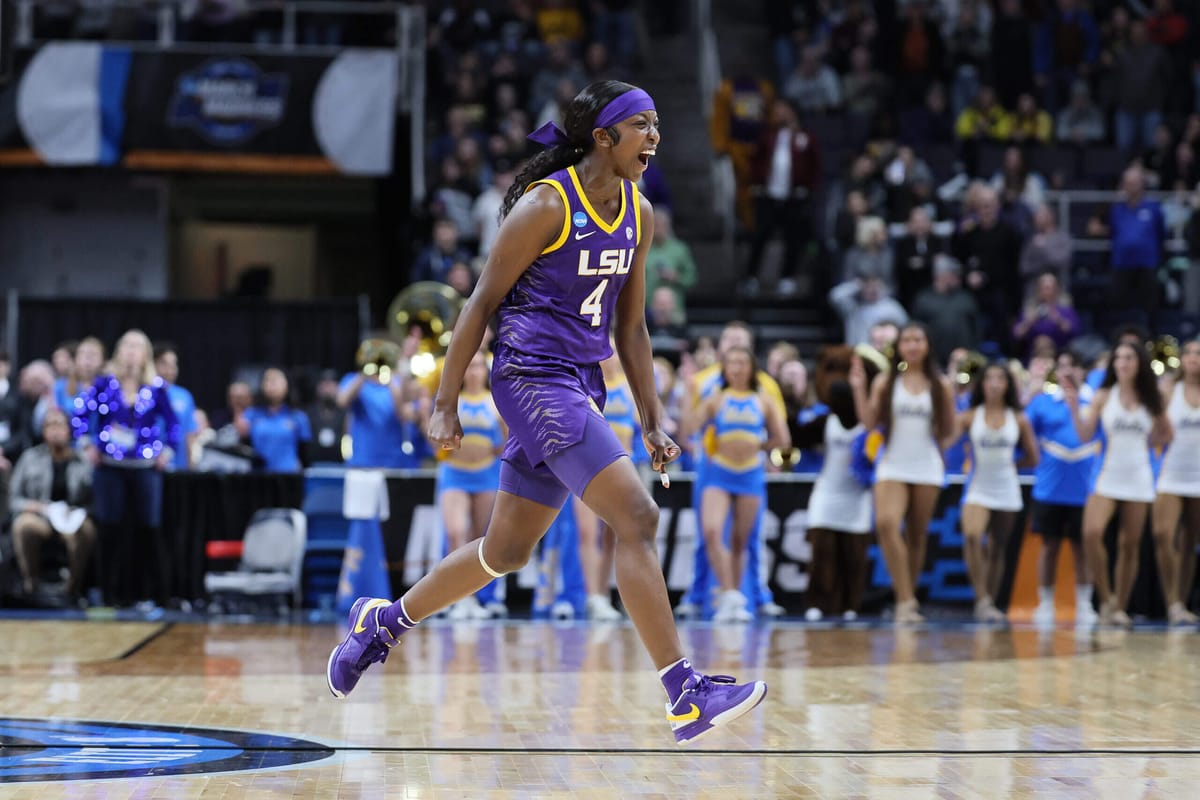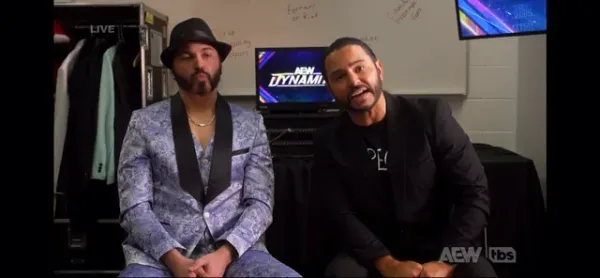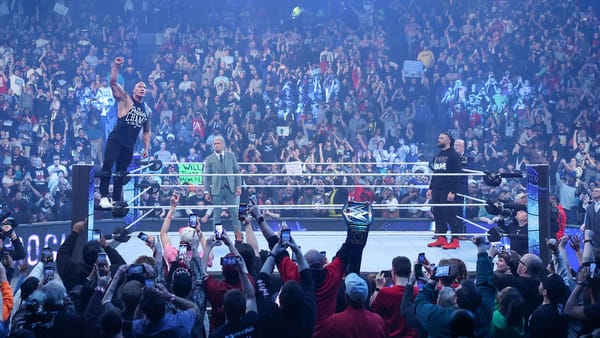The NCAA Women's Basketball Trash Talk Is Great, Actually
As we are making our way through a historic women's NCAA tournament, let the women show emotion without judgment.

I've been a basketball fan for most of my life, and a particular trash-talking story always seems to circle the wagons. You know the one. Right before the 1988 NBA 3-point contest, Boston Celtics legend Larry Bird was in the locker room with his opponents and said, "Which one of you guys is playing for second?" The exact language of what he said varies, but he did say something to that effect and proceeded to go out and win. There is a 20-minute YouTube video where players and journalists recount stories of Bird's legendary shot-calling feats. It's the same story with Michael Jordan, the late Kobe Bryant, and almost every sport.
Trash talk is a product of the competition's passion. It happens in the heat of battle, and people might initially be disgusted by it but then romanticize it when they look back on it. Mamba mentality or Michael Jordan's ability to turn anything into a form of motivation—it's all the same. The conventional thought process of a fan is that we want the athletes we cheer for to be locked in. So, why aren't some of the players in the 2024 NCAA Tournament being afforded that same latitude? Why are some so aghast that women athletes also talk trash? The viewership has been through the roof, and that's because of the sheer talent that's on the floor night after night. However, more eyes bring some somewhat reductive views on how the game should be played (or, in this case, how women should handle themselves while playing it).
Contrary to some belief, women curse, argue with the refs, beckon the fans to cheer, and let their emotions out after a big play. The aversion to that draws from a distorted view of traditionalism. What do you mean LSU's Flau’jae Johnson and Angel Reese make gestures and play up big defensive stops or Iowa's Caitlin Clark yells, "Let's f*ckin go" to excite the crowd like their male counterparts? They are supposed to be "lady-like." However, the growing interest in the game, both in college and the WNBA, is because these champions are showing all of themselves. It brings me to a particular piece in the LA Times (which has since been edited) that called the women's LSU Tigers team “dirty debutantes” and billed them as the villains. Teams being billed bad isn't new—the New York Yankees are dubbed "The Evil Empire," and there was the "Bad Boy" Detroit Pistons team of the late 80s and early 90s. The Tigers are the defending national champions, so of course, teams are going to try to knock them off their pedestal.
Despite this, there's a different visceral reaction to this team that I had written about last year with the response to Angel Reese's ring taunt in the 2023 NCAA final. It's a two-pronged issue once you factor in that LSU is a team comprised mainly of young Black women. I've discussed the overall problems of how women athletes should act filtered through the male gaze. Then, there is the prejudice bias that if Black women play with swagger and emotion, they are somehow unbecoming and dragging down the sport. To call the Tigers "debutants" is to ignore they are already champions. We don't need an introduction to a team that's lifted the banner, as they don't need to introduce themselves to us. It may be time for the world to meet them on their terms.
If fans want women's basketball to thrive in the ways they claim, it can't just be from a distance or with artificial parameters these athletes have to keep breaking down. There has to be a complete embrace of culture, and fire isn't just localized for men to experience. Could you imagine people getting on Michael Jordan for his trademark tongue wag? So, don't overcompensate here; enjoy the game.




